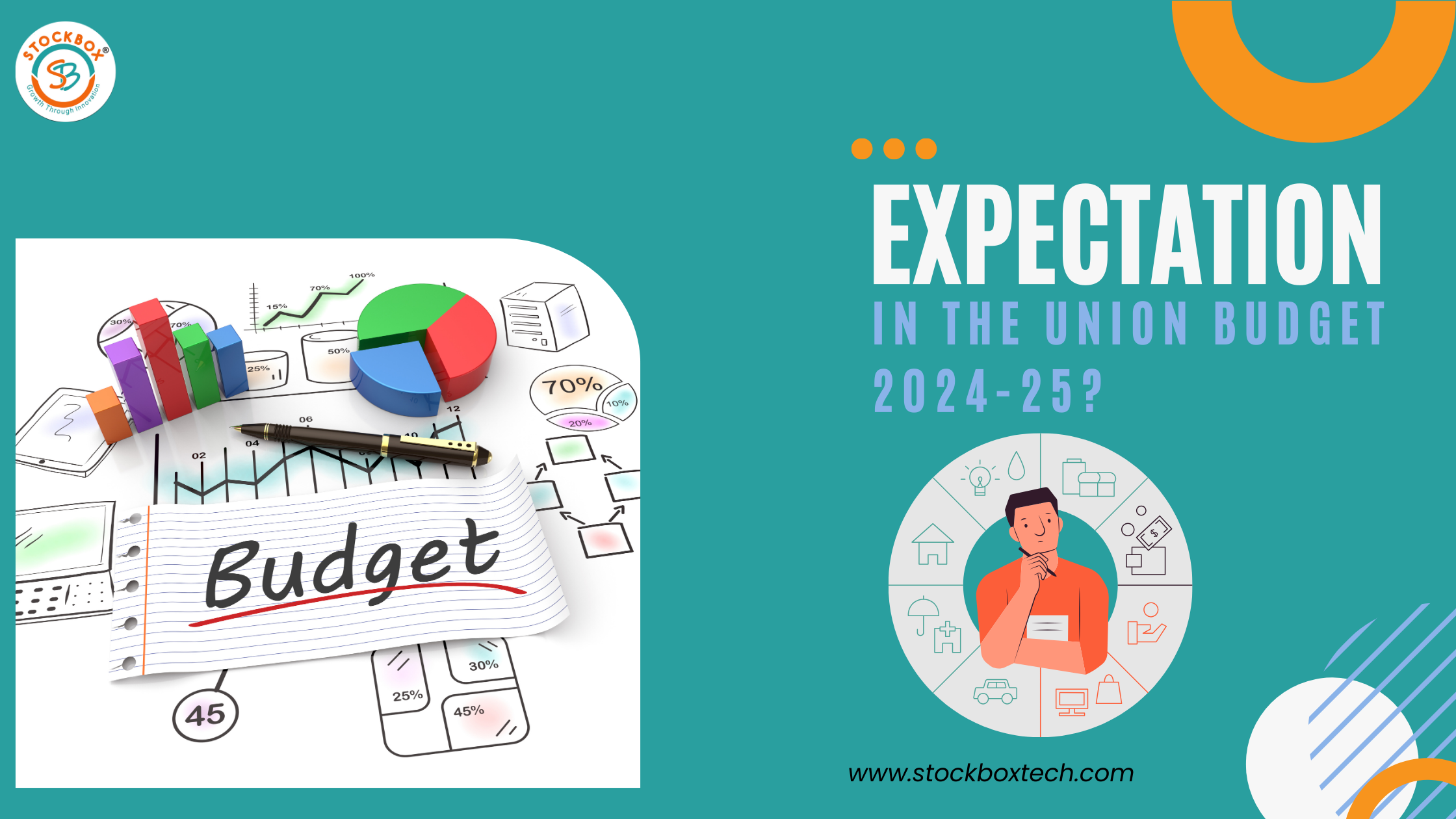We are almost at the point of union budget 2024-25 and in India there are almost every one eagerly waiting for it. The Union Budget is an important financial plan which shows how a government will get money and spend on it in upcoming years. It greatly affects a country’s economy. This blog looks into the expectations from the Union Budget 2024-25 such as likely policy changes, fiscal decisions and important details in various sectors.
Finance Minister Nirmala Sitharaman is expected to present the Union Budget 2024-25 between July 22 and August 9, 2024. This is important because it sets the path for the economy in the coming years.
Economic Growth and Budgetary Balance
The main focus of the Union Budget 2024-25 will be on improving economic growth rates as well as managing budget deficits. Given global economic uncertainties coupled with domestic challenges post pandemic times, it is expected that the government will initiate measures aimed at boosting economic growth. This may mean increasing public expenditures in sectors like infrastructure, health care, education among others.
Monitoring the Target for Fiscal Deficit
The fiscal deficit was targeted at 6.4% of GDP in the Union Budget 2023-24. In 2024-25, a more ambitious target might be set with the deficit ranging from 5.5% to 6%, striking a balance between growth and fiscal prudence.
- Tax Reforms
- Indirect Taxes
In anticipation of potential tax cuts in the forthcoming Union Budget, many middle-class people and salaried individuals are hoping for some respite. Talk has it that the basic exemption limit could be raised either to ₹3 lakh or even higher than that from current figure of ₹2.5 lakh as well as tax slab adjustments that will enable taxpayers have more disposable income. After extensive changes in personal income tax regime last year, there may be further simplifications or reliefs ahead.
To make investments more appealing and ease compliance burden, government may also think about streamlining capital gains tax structures.
b. The Goods and Services Tax
In terms of indirect taxes, such as the Goods and Services Tax (GST), there could be attempts to streamline the system. This may involve reducing the number of GST slabs or changing the rates to simplify tax structure and enhance compliance. A sense of relief might be experienced by sectors like real estate which have been pushing for reductions in GST rates. Earlier budgets have changed GST rates and this could go on towards making a more coherent tax regime.
- Infrastructure Development
Infrastructure development still remains important in promoting economic growth. A substantial part of Union Budget 2024-25 is expected to be devoted towards building new infrastructure facilities and upgrading existing ones. Some key areas include:
Transportation: Continued spending on highways, railways, and urban transportation projects.
Smart Cities: Expanding the Smart Cities Mission through increased allocations and initiation of new schemes.
Renewable Energy: Scaling up investments in solar, wind, etc., other renewables suitable for realizing country’s sustainable development goals.
Significant funds were earmarked for national highways and expansion of metro projects in the previous budget 2023. Such or even more intense concentration on infrastructural enhancement is projected this year.
- HEALTHCARE AND EDUCATION
Healthcare is one of the concerns that were brought into focus by the pandemic called Covid-19. In its next budget, it is probable that more monies will be provided for healthcare infrastructure, medical research and public health programs. There might be declarations concerning widening plans like the Pradhan Mantri Jan Arogya Yojana (PMJAY) or other policies on healthcare.
Education also remains a major area of focus. It would be reasonable to expect higher funding of digital education, teacher training as well as school and higher education infrastructure development. In this case, accelerated implementation can be anticipated across various initiatives under National Education Policy (NEP) 2020 due to the support by budgetary resources.
- Agriculture and Rural Development
The agriculture sector, which is crucial for India’s economy is expected to get significant attention in this year’s budget speech. Earnings from agriculture can only increase if farmers’ income rises through increased productivity in agriculture towards promoting rural development. The following are some key expectations:
Increased Minimum Support Price (MSP): Expectations of MSP revisions for different crops to guarantee improved earnings for farmers;
Irrigation Projects: More funding for irrigation projects aimed at increasing water availability;
Agri-Tech: Offerings that will encourage incorporation of technology in agriculture to boost efficiency.
- MSMEs and Startups.
MSMEs and startups are crucial for job creation and innovation. It is expected that the Union Budget 2024-25 will have some measures to support these sectors such as:
-Credit Support: Making it easier to access credit through initiatives like Credit Guarantee Fund Scheme for MSMEs.
-Tax Incentives: Continuing tax benefits for startups with simplifications of compliance processes.
-Skill Development: Intensifying programs aimed at developing skills of the workforce needed by MSMEs and startups.
In the 2023 budget, different supportive policies were put in place for MSMEs like emergency credit lines, which are expected to be expanded in the forthcoming budget.
- Digital India and Innovation
The government’s aim of making India go digital is likely to gain traction with this year’s budget. There could be huge financial allocations towards expanding internet access, promoting digital literacy, fostering innovation. So, expect announcements geared towards supporting emerging technologies such as artificial intelligence, blockchain, Internet of Things (IoT).
- Environment and Sustainability
The Union Budget 2024-25 may give priority to environmental sustainability due to the increasing global concerns on climate change. Some of these areas:
– Green Energy: incentives, renewable energy projects, electric vehicles.
– Pollution Control: funding for initiatives aimed at reducing pollution levels in major cities.
– Sustainable Agriculture: enforcing organic farming and other appropriate agricultural practices.
The 2023 budget emphasized green energy and sustainability initiatives that are likely to be expanded further.
- Social Welfare Programs
The government is predicted to continue its focus on social welfare programs targeted towards lifting up marginalized sections of society. Expect an increase in the amount of money allocated for schemes such as Mahatma Gandhi National Rural Employment Guarantee Act (MGNREGA), Pradhan Mantri Awas Yojana (PMAY) among others and many more social security programs.
- Defence and Security
Amidst geopolitical tensions and need to modernize the armed forces, a substantial budgetary allocation is expected for the defence sector. Areas of interest will include investing in indigenous defence production; procuring modern equipment’s; upgrading existing infrastructures etc.
This table summarizes the potential impacts on key sectors expected from the Union Budget 2024-25.
| Sector | Potential Impacts |
| Banking And Financial Services | Recapitalization of Public Sector Banks to strengthen balance sheets. Measures to address and reduce Non-Performing Assets (NPAs). Initiatives to promote digital banking and enhance financial inclusion. |
| Automobile Industry | Potential reduction in GST rates for vehicles to stimulate demand. Enhanced incentives and subsidies for Electric Vehicles (EVs). Implementation of a vehicle scrappage policy to boost new vehicle sales. |
| Real Estate and Construction | Enhanced tax benefits for homebuyers and developers to spur demand. Increased focus on affordable housing with additional incentives. Simplified regulatory procedures to attract investments in real estate. |
| Technology And IT Services | Increased funding and tax incentives for research and development (R&D). Announcements on data protection regulations. Continued support for tech startups through funding and incubation programs. |
Citizens’ Expectations
| Concern | Potential Measures |
| Relief From Inflation | Increased subsidies on essential commodities like food and fuel. Investments in supply chain logistics to reduce costs. |
| Job Creation | Enhanced funding for skill development programs. Incentives for labour-intensive industries such as textiles and manufacturing. |
| Enhanced Social Security | Pilot projects for Universal Basic Income (UBI) discussions. Improvements in pension schemes for financial security of the elderly. |
Conclusion
The Union Budget for 2024-25 is expected to be a very important document that will decide India’s economic path for the future years. The government plans to support growth in different sectors, change tax rules, and focus on sustainable development. Everyone involved needs to stay updated and prepare to take advantage of new policies and opportunities that the budget will bring. People are eagerly waiting for the budget announcement because it shows how the government plans to guide the country’s economic future.

